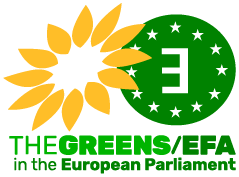Le 12 novembre 2015, l’Autorité européenne de sécurité des aliments (EFSA, en anglais) a estimé que le glyphosate, la substance active de l’herbicide Round Up le plus vendu au monde, n’était « probablement pas cancérogène » pour les humains. La position de l’EFSA va à l’encontre des conclusions du Centre international de recherche sur le cancer (CIRC) qui a conclu en mars 2015 que le glyphosate est « probablement cancérogène ». L’évaluation du CIRC a été effectuée dans la transparence la plus absolue, les déclarations d’intérêts des experts impliqués ayant été publiées. Ce n’est pas du tout le cas pour l’EFSA. Comme l’a révélé l’ONG Corporate Europe Observatory (CEO), 80% des experts de l’EFSA n’ont pas publié leur déclaration d’intérêts et l’EFSA a fondé ses conclusions en partie sur des études de l’industrie non rendues publiques. Malgré la demande de CEO d’avoir accès à ces études, l’EFSA a fait savoir qu’elle ne pouvait les publier du fait de leur caractère « confidentiel ». Une telle réponse est inacceptable. Le secret des affaires ne peut pas être une excuse quand il existe un intérêt pour la santé publique. J’ai donc demandé avec trois autres de mes collègues verts au Parlement européen à avoir accès à ces études et aux déclarations d’intérêts des experts de l’EFSA. L’omerta ne peut plus durer. C’est l’objet de la lettre que vous pouvez trouver ci-dessous en Anglais.
Si vous voulez être tenus informés de la réponse de l’EFSA à notre demande, cliquez ici et suivez cette page.
[facebook_ilike]Dear Bernhard Url, Executive Director of the European Food Safety
Authority,
Under the right of access to documents in the EU treaties, as
enshrined in Regulation 1049/2001 and in the Aarhus Regulation, we
are requesting documents which contain the following information:
There is an alarming scientific controversy between the European
Food Safety Agency (EFSA) and the International Agency for Research
on Cancer of the World Health Organisation (IARC) with regard to
the carcinogenicity of glyphosate. In March 2015, IARC concluded
that glyphosate is a probable human carcinogen (category 2A) .
However, later that same year, in November 2015, EFSA concluded
that glyphosate is « unlikely to pose a carcinogenic hazard to
humans and the evidence does not support classification with regard
to its carcinogenic potential » .
Proper classification of glyphosate is crucial because it
potentially affects public health and entails important regulatory
consequences. It is therefore vital to investigate why there are
contradictory results in the EFSA and IARC assessments. To date
EFSA has explained that its « evaluation considered a large body of
evidence, including a number of studies not assessed by the IARC
which is one of the reasons for reaching different conclusions ».
This means that the EFSA peer review is based on unpublished
studies whose findings cannot yet be verified and subjected to
independent scrutiny.
The need to achieve clarity in this regard is both urgent and
evident. Glyphosate is used in around 750 pesticides commercialised
by 91 companies across the globe. According to data published by
IARC, glyphosate is registered in « over 130 countries as of 2010
and is probably the most heavily used herbicide in the world. »
The European Union is obliged to take decisions as openly as
possible so that it contributes to strengthening the principles of
democracy and respect for fundamental rights, and to ensure the
protection of human health, which the EU is committed to ensure in
all of its policies and activities.
Therefore we, members of the European Parliament, on the basis of
regulation (EC) No 1049/2001 on public access to documents and
regulation (EC) No 1367/2006 on the application of the provisions
of the Århus Convention, request access to all documents that have
been used during the EFSA peer review. Our request covers complete
documents and not only their summaries, and extends also to the
names of the authors and their declarations of conflicts of
interests.
Respectfully,
Heidi Hautala
Benedek Jávor
Michèle Rivasi
Bart Staes



Bonjour Madame la Députée Européenne.
Je tenais simplement à vous adresser mes sincères félicitations pour le travail que vous réalisez et les causes que vous soutenez.
Bien respectueusement
Marie Hugon
[…] démocratie » Le néolibéralisme est un fascisme. Divers… AssoFaAOD – 21. AssoFaaod – 22. Glyphosate: mettons fin à l'omerta. Related: Thomas Piketty – – – L'industrie agricole […]